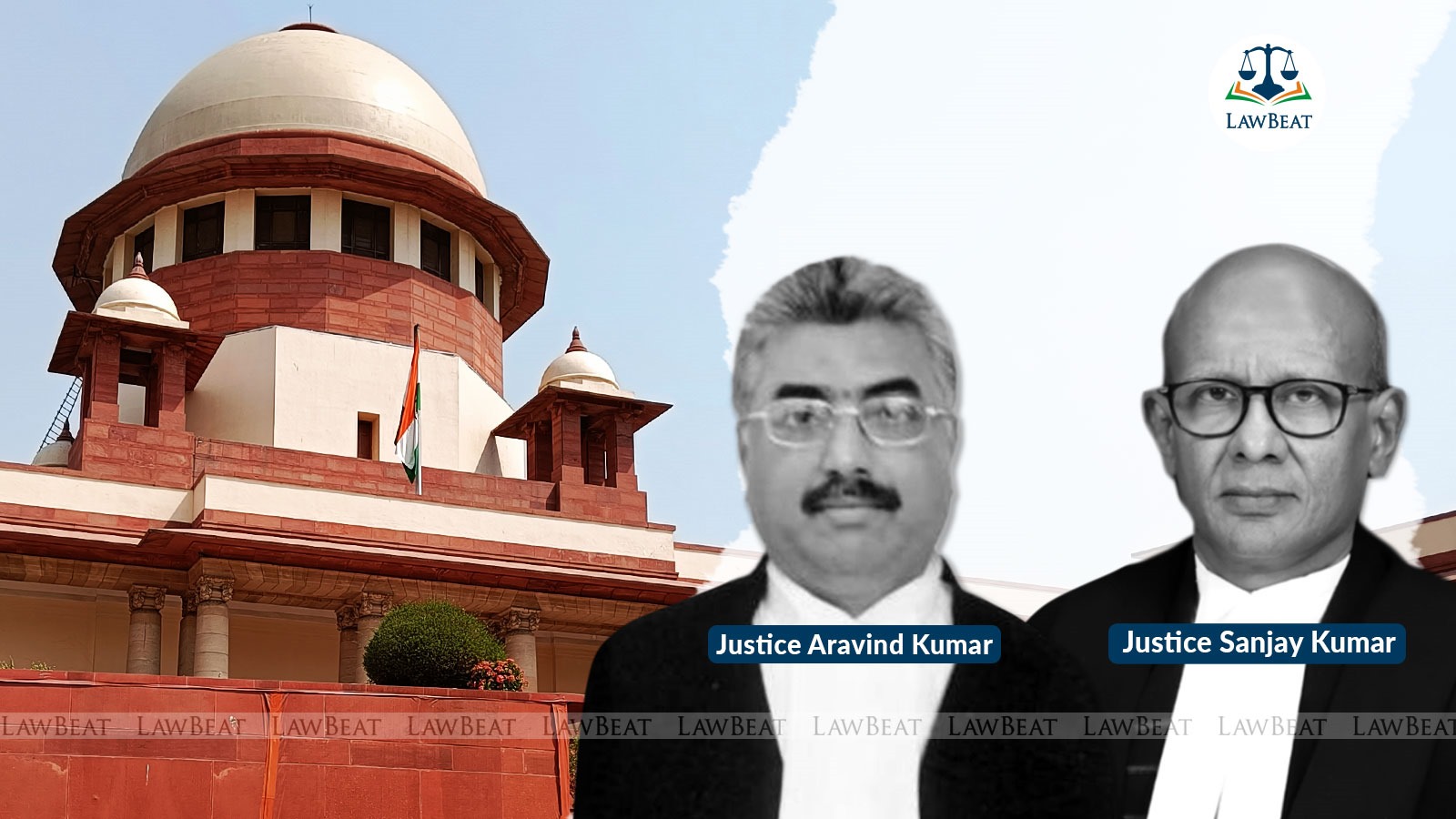'Prosecution case full of lacunae, based on shaky evidence': SC acquits two men in murder case

Court said that though the maxim ‘Falsus in uno, falsus in omnibus’ is only a rule of caution and has not assumed the status of a rule of law in the Indian context, an attempt must be made to separate truth from falsehood and where such separation is impossible, there cannot be a conviction
The Supreme Court on September 18, 2024, acquitted two men in a 2006 murder case in which they had suffered 10 years of imprisonment. Court found that the prosecution case was full of lacunae and based on shaky evidence.
A bench of Justices Sanjay Kumar and Aravind Kumar extended the benefit of doubt to appellants Saheb and another person.
"Though the maxim ‘Falsus in uno, falsus in omnibus’ is only a rule of caution and has not assumed the status of a rule of law in the Indian context, an attempt must be made to separate truth from falsehood and where such separation is impossible, there cannot be a conviction. We find that to be so in the case on hand," the bench said.
Twenty-two persons faced trial in the case related to the murder of Madhavrao Krishnaji Gabare in the court of Additional Sessions Judge, Basmathnagar, Maharashtra. Nine of them were held guilty by the trial court and filed an appeal before the high court which sustained conviction in the case of three and acquitted six others.
Accused Saheb and Sitaram Pandurang Gabare filed an appeal before the apex court. One of the accused did not file the appeal.
The prosecution claimed that on April 08, 2006, at about 7.30-8.00 pm, the deceased Madhavrao Krishnaji Gabare and his family members, viz his wife, Janakibai Gabare, their son, Ganesh, and the daughter-in-law, Annapurnabai, and others were attacked by the accused with axes and sticks at the residence of the deceased in Village Singi.
The cause for the altercation was stated to be political rivalry. The deceased, as per his widow, was the Sarpanch of the Village about 15 years before the incident and since then, Khemaji and Sambhaji, two of the accused, were on inimical terms with him.
Thereafter, Laxmibai, the wife of the nephew of the deceased, became the Sarpanch of the Village, leading to further animosity. Significantly, both accused Khemaji and Sambhaji were the nephews of the deceased being the sons of his brothers, Maroti and Deorao.
"We are conscious of the fact that Madhavrao Krishnaji Gabare was brutally murdered in his own house on 08.04.2006, but the guilt of those responsible for his murder has to be proved beyond reasonable doubt. All that the defence needs to establish is the existence of reasonable doubt for the accused to be given the benefit thereof," the bench said.
The court noted in the case on hand, the guilt of the appellants hinged solely upon the testimony of the widow, Janakibai (PW-1), as the other so-called eye-witnesses had been discarded by the high court. Notably, Annapurnabai, the daughter-in-law, a key eye-witness by all accounts, was not even examined by the prosecution.
It further pointed out that picturing a scenario where twenty-two persons entered into the premises armed with axes and sticks on a dark night, even if dimly lit by moonlight, it was difficult to believe that, in the melee that ensued, any person who was under attack would be in a position to identify, clearly and with certainty, as to who was assaulting whom and with what weapon.
More so, as PW-1 claimed that Sambhaji, Accused No. 4, was one of the first persons to enter the premises along with Khemaji, Accused No 2, but no attack was attributed to him, leading to his acquittal by the high court, it said.
Court opined that there was no doubt possible that PW-1 could have identified the accused who first entered the premises armed with axes and launched the initial attack on her husband, but given her contrary statements on even these crucial facts and more particularly, in the context of Sambhaji, Accused No 4, and Chandu, Accused No 13, her evidence could only be placed wholly in the realm of uncertainty and no credence could be given to her solitary testimony on any aspect.
Court thus allowed the appeal and acquitted the two appellants of the offences under Section 148 IPC and Section 302 IPC read with Section 149 IPC.
Case Title: Maroti Bhumre Etc Vs The State of Maharashtra
